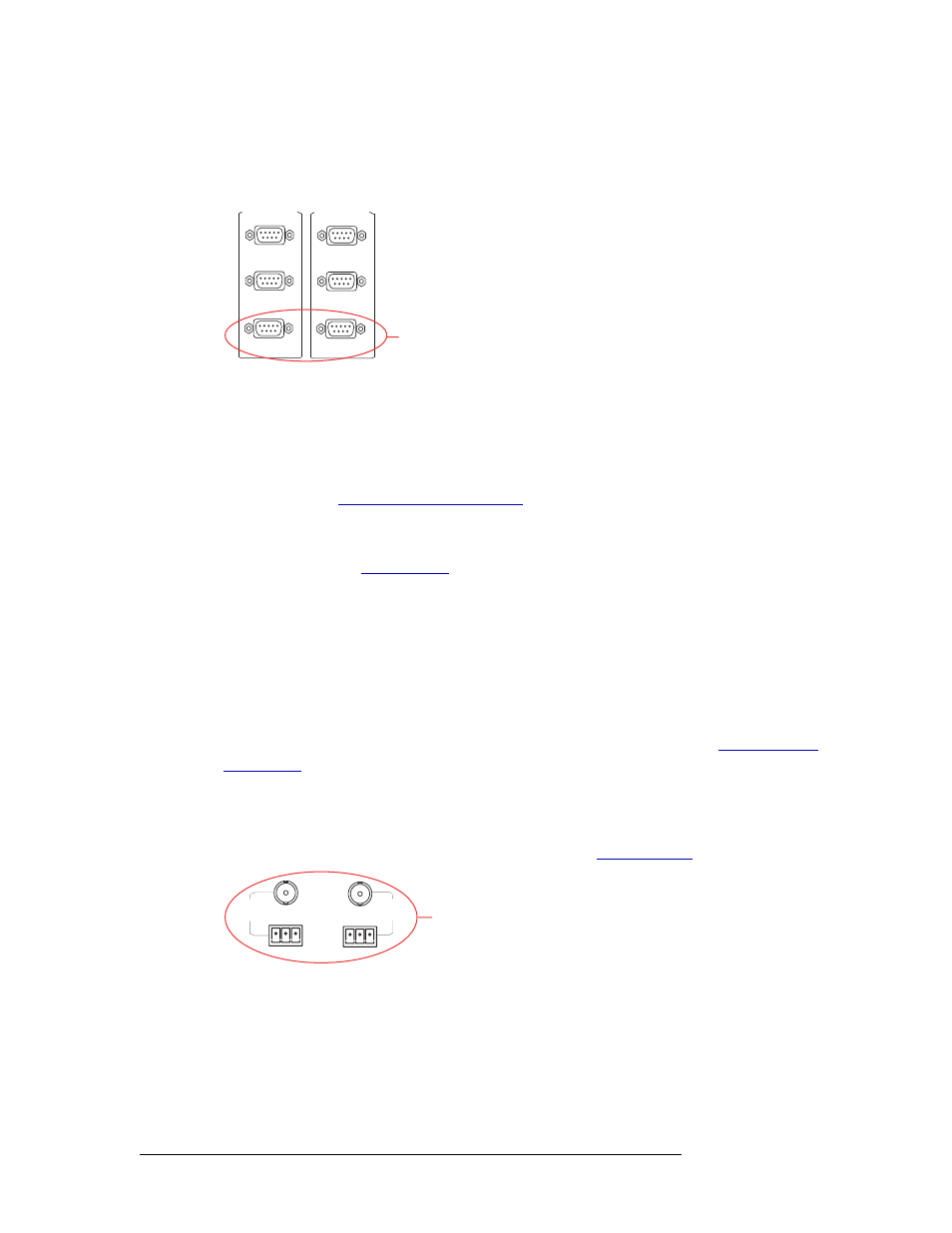Aes reference connections, Video reference connections, Introduction – Grass Valley NV7512 v.1.3 User Manual
Page 28

18
Rev 1.3 • 10 Oct 08
1. Introduction
Module Slots and Rear Connectors
There are two permanent ‘DIAG’ ports, one primary (‘PRI CTRL’) and one secondary (‘SEC
CTRL’). The primary control connects to the primary control card. The secondary control connects
to the secondary (optional for redundancy) control card.
Figure 1-12. Permanent Diagnostic Connections (Rear View)
AES Reference Connections
The AES reference is used for clock generation. The clock provides a timing reference for AES
synchronous signals and for the control card’s timing circuits. For optimum audio output, signals
must be clock-locked to the same reference. Input impedance is selected by setting jumpers on the
control card. (See
The NV7512 has two AES reference connections labeled ‘AES REF1’ and ‘AES REF2’, as shown
in Figure 1-13 on page 18. Both connections are shared by the primary control card and the second-
ary control card. (See
on page 20.) The AES reference connections are “redundant”
and use the same reference type. When both reference connections are connected, if one reference
fails, the control card automatically fails-over to the redundant reference.
Synchronous AES input cards can work with inputs that are not locked to a common AES refer-
ence. These inputs are treated as non-synchronous AES signals. Although possible, it is not recom-
mended that you operate under these settings for high-quality program audio feeds. Router
specifications are not guaranteed; the audible effects may be unpredictable, depending on the pro-
gram content and the degree of offset in the incoming data rate.
An AES reference is required when using synchronous AES output cards. (See
on page 18.) While it is possible to let the clock generator on the control card free-run,
the synchronous AES outputs may contain ticks and pops, the severity of which depends on the dif-
ference in clock rate.
The AES reference connection requires a stable signal source of AES with a sample rate of 48kHz.
For instructions on making AES reference connections, see
Figure 1-13. Connections to AES References (Rear View)
Video Reference Connections
The NV7512 provides timing reference connections for video signals, labeled ‘VIDEO REF 1’ and
‘VIDEO REF 2’, as shown in Figure 1-14. These connections provide a reference input for deter-
mining the router’s video frame switch point. The same reference can be used for both connections
or a different reference used for each connection.
CTRL 1
CTRL 2
PRI CTRL
DIAG
Diagnostic
Connections
CTRL 1
CTRL 2
SEC CTRL
DIAG
AES
REF1
AES
Reference
AES
REF 2